Billionaires account for $1 of every $10 raised this election. These 11 anted up the most.
Billionaires are opening their wallets wide – very wide – to support political candidates and causes as a crucial election nears that will decide control of Congress for the next two years – and hence legislation that could benefit the ultra wealthy.
A USA TODAY analysis found billionaires contributed nearly $675 million so far this election cycle – with almost all of that coming from the top 50 mega-rich givers, according to data tracked by OpenSecrets. That’s more than 10% of the total pumped into the political system, a gigantic proportion compared to their miniscule share of the population. There are roughly three billionaires for every million adults in the United States.
Republicans were the favored recipients, collecting $360 million from billionaires compared to $300 million logged by Democrats. Republican candidates and groups banked multimillion-dollar contributions from Home Depot founder Bernard Marcus and tech titan and Hawaiian island owner Larry Ellison, among others.
More than a third of Democrats’ take came from a single man – hedge fund mogul George Soros, a longtime bogeyman for conservatives and target of conspiracy theorists.
Experts say the monstrous amounts the ultrawealthy are allowed to pump into the political system skews the entire democracy. Money is the juice that fuels electoral politics, allowing candidates and organizations to effectively compete for power, and the donors who provide it get influence in return.
“Their priorities are what get attention, their views are what get attention,” said Richard Briffault, a Columbia Law School professor who studies legislative processes. That leaves average Americans much lower on officeholders’ priority list.
USA TODAY’s analysis, conducted in partnership with OpenSecrets, a nonpartisan nonprofit organization that tracks money in politics, includes contributions made by billionaires and their spouses reported to the Federal Election Commission through July. It does not include contributions made to political groups that do not have to disclose donors.
Political candidates and committees reported contributions from a majority of the 735 billionaires in the United States recognized by Forbes, which tracks the net worth of the richest of the rich around the world.
They spread the largesse across hundreds of candidates and committees, but notably dumped millions into key races that could decide control of the House and Senate, where Democratic caucuses hold slim majorities.
Top billionaire spenders in 2022 election
Here are the 11 billionaires who opened their wallets the widest to influence the outcomes, from a private equity titan whose parties have featured camels, Bond girl models and Gwen Stefani, to a splashy young crypto mogul who sleeps on bean bags and waxes philosophical on Twitter about playing video games too much.
1. George Soros
$128.5 million
Investor and philanthropist George Soros became the biggest billionaire benefactor this election cycle with a single, massive infusion of $125 million to fill the coffers of a political action committee he uses to funnel money to left-leaning and progressive organizations and candidates.
The 92-year-old, Hungarian-born chair of Soros Fund Management LLC has long been a target for conservatives and the subject of widespread conspiracy theories. They include claims he owned a Wuhan lab where coronavirus originated, was once a Nazi, and hired people to stage protests after police killed George Floyd.
Soros – a big backer of Hillary Clinton’s presidential bid -- was also the subject of tweets by former President Donald Trump, who accused him of hiring protesters to oppose the nomination of Supreme Court Justice Brett Kavanaugh.
So far this election cycle, his political action committee, “Democracy PAC II” doled out millions to organizations backing women of color, progressive voter-turnout efforts and the retention of Democratic majorities in the House and Senate. The committee still had $113 million in the bank at the end of June.
Soros also gave directly to dozens of Democratic candidates, including Rep. Pramila Jayapal of Washington and Sen. Raphael Warnock of Georgia, and his contributions were spread to Democratic parties in 21 states across the country.
A spokesman for Soros declined to comment on the record. He told Politico earlier this year that the mammoth outlay to Democracy PAC II is a “long-term investment” that will back candidates and causes beyond the November election.
2. Richard and Elizabeth Uihlein
$54.2 million
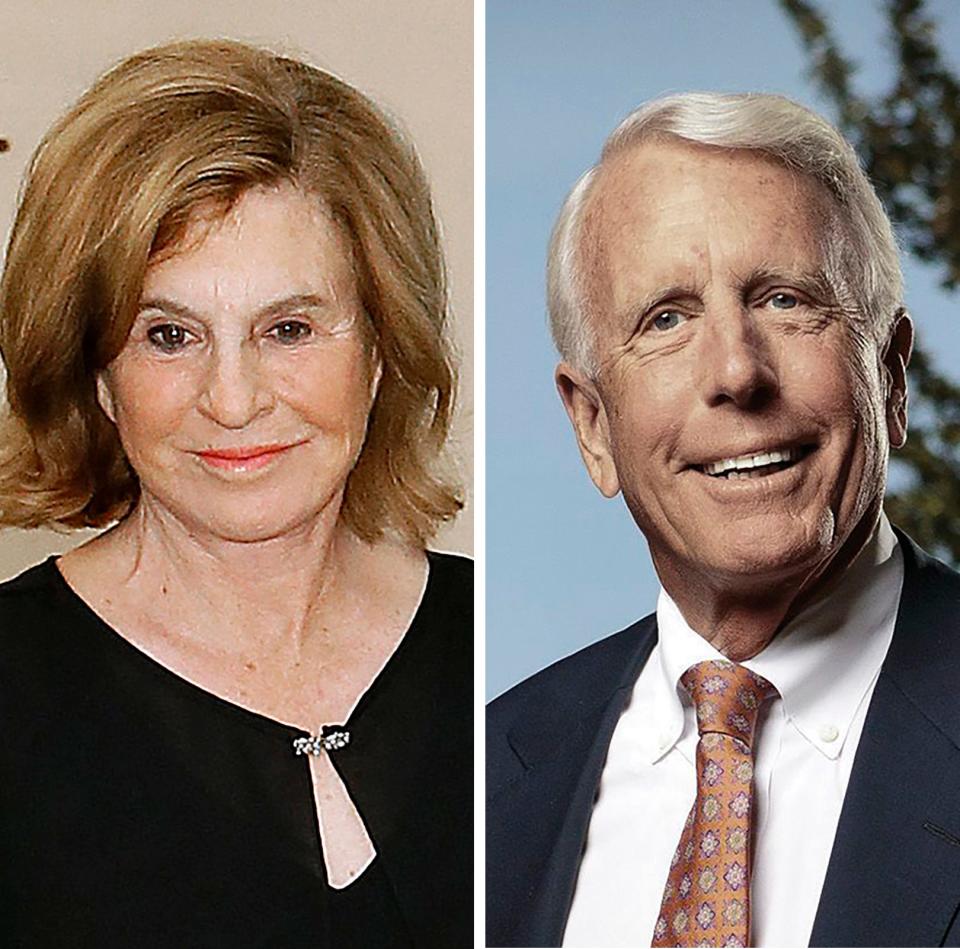
Richard “Dick” Uihlein, 77, and his wife, Elizabeth, have long been among the top Republican political donors in the country, and this election cycle is no exception.
The billionaire founders of Wisconsin-based shipping and industrial supply company Uline, the couple has funneled more than $25 million to the Club for Growth Action super PAC, which has backed anti-establishment conservative candidates. Among them is Republican Rep. Tedd Budd, a member of the House Freedom caucus and the Trump-backed GOP nominee for Senate from North Carolina.
The Uihleins ponied up another $13 million for Restoration PAC, a committee funded almost entirely by the couple that says it “provides support to truly conservative candidates, and opposes Leftists and the woke agenda.” The group has so far spent $900,000 on ads opposing Democratic Senate candidates in Arizona, Georgia, Nevada, and Wisconsin.
The Uihleins, who started Uline in their basement in 1980 and are now worth more than $3 billion according to Forbes, were big backers of Trump’s reelection campaign. Elizabeth Uihlein fundraised for his 2016 campaign.
They declined through a spokesman to be interviewed or provide comment. In letters posted to Uline’s web site, Liz Uihlein argues against “excessive government benefits” that are “discouraging our work ethic,” and praises Trump’s moves to cut taxes, enforce immigration laws and revamp trade deals.
“I am a believer in these policies, but they take time,” she wrote, before adding. “Then Trump lost.”
3. Ken Griffin
$49.6 million
For Ken Griffin, stock trading began at Harvard University, where he had a satellite dish installed on his dormitory roof so he could get real-time stock quotes.
The 53-year-old founder and chief executive officer of the investing firm Citadel recently outbid crypto investors for an ultra-rare copy of the Constitution (bidding $43 million), and owns the largest estate on Florida’s Palm Beach Island. The property sits a quarter mile south of Trump’s Mar-a-Lago club.
Griffin told the Chicago Tribune in 2012 that he believed the government was "way too involved" in the country’s financial system following the Great Recession and that he backs candidates who support more limited government. He said the ultrawealthy had "insufficient influence” on the political process and had a duty to be more engaged.
Over the years, Griffin donated millions to dozens of right-leaning candidates, committees and officeholders, but did not contribute to Trump’s presidential campaigns. He has given to Trump-backed candidates this election cycle, though, writing checks to Rep. Scott Perry of Pennsylvania and Sen. Ron Johnson in Wisconsin, both of whom were involved in efforts to overturn the 2020 presidential election.
A Griffin spokesman, Zia Ahmed, noted Griffin himself did not question the results and donated to Biden's inauguration. In an interview with USA TODAY, another Griffin spokesman, Cason Carter, said he is a centrist who wants to protect the American dream and pathways to achieve it. “He is self-made, didn't inherit his wealth, and found a way to be a successful entrepreneur. He loves that America provides that path, and his desire is that this path be available to everyone.”
The bulk of Griffin’s contributions this election cycle – nearly $30 million – have gone to Republican political committees seeking to capture majorities in Congress. He also gave to groups backing veterans, women and candidates of color. “He's been particularly focused in the last few cycles on broadening the tent of the Republican Party,” Carter said.
When it comes to 2024, Griffin, who is moving his firm to Florida – making him the richest resident there – is all-in behind Ron DeSantis if the Florida governor runs for president.
4. Sam Bankman-Fried
$39.7 million
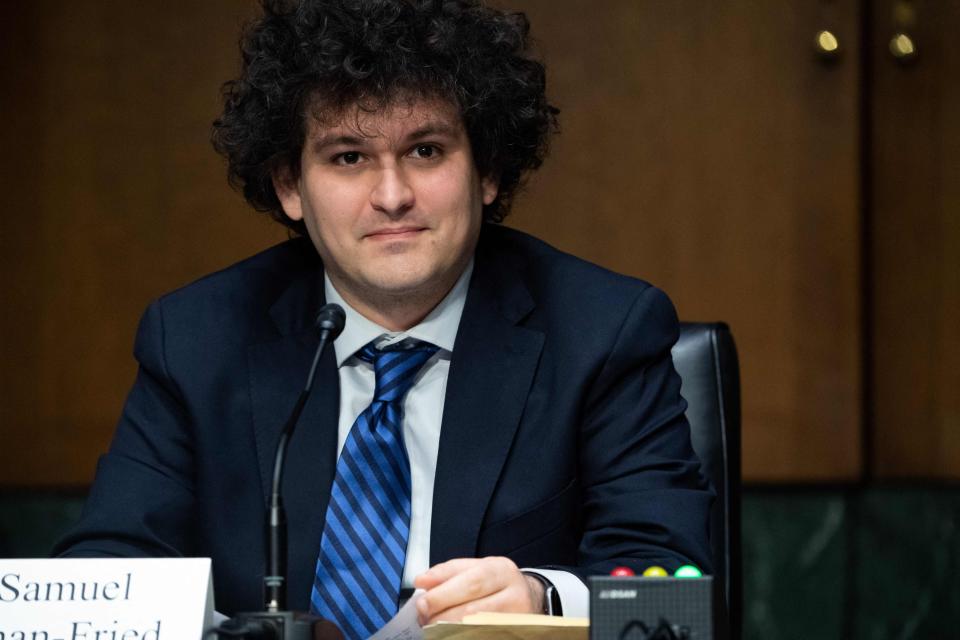
Sam Bankman-Fried, 30, launched a cryptocurrency trading firm and FTX, a cryptocurrency exchange, in 2019 and quickly became a multibillionaire.
Known as SBF, Bankman-Fried often sleeps on bean bags in his office in the Bahamas, and takes to social media with lengthy soliloquys on gaming, his brain, and NFL Quarterback Tom Brady, who owns a stake in FTX.
He burst onto the political mega-donor scene during the 2020 presidential campaign, pouring millions into committees supporting Joe Biden – investments that placed him among the top donors backing the soon-to-be president.
Bankman-Fried now makes frequent donations to candidates on both sides of the aisle, though the majority are for Democrats. He plunked down $6 million to help House Democrats this November defend their majority in the House and gave $27 million to a group called Protect Our Future, which says it backs candidates focused on pandemic prevention.
Bankman-Fried also gave $2 million to support crypto-friendly candidates. Spokespeople at FTX did not respond to messages from USA TODAY seeking comment. He told POLITICO earlier this year he believes crypto is facing a reckoning in Washington soon and it’s important to be engaged with policymakers. “I care about policy more than politics,” he said.
Earlier this year, Bankman-Fried spit-balled his spending in the 2024 presidential election will be “north of $100 million” and as much as $1 billion in other races ahead of 2024. “It’s really dependent on exactly who’s running where, for what,” he said on the “What’s Your Problem” podcast, suggesting $1 billion was a "soft ceiling."
5. Jeff Yass
$31.8 million
Jeff Yass is the richest man in Pennsylvania, and, according to Forbes, turned gambling profits from horse-racing and poker into a billion-dollar fortune as the co-founder of trading firm Susquehanna International Group.
Yass is a secretive trader who compares stock-trading to poker. Training for new hires at Susquehanna includes simulations of trading and Texas hold ‘em, and, Forbes reported, Yass has been known to review the hands they play, looking for skills and mistakes.
In politics, he has spent millions of dollars backing Republican candidates and right-leaning organizations and is a fervent backer of school choice. Yass contributed $20 million to the conservative Club For Growth Action and School Freedom Fund, which supports candidates who believe parents "should be in charge of their children's education." The fund’s website decries school closures, mask mandates and the teaching of critical race theory.
A spokesman for Susquehanna declined to comment on the record. The Philadelphia Inquirer earlier this year published a statement from his spokesman noting that Yass is a "never-Trumper" who did not question the 2020 election results. In January 2021, the Inquirer reported that a former fellow Wall Street trader asked Yass about his donations to Club for Growth, which backed candidates who voted against certifying presidential election results, including Republican Sen. Josh Hawley of Missouri.
Yass replied that his contribution was made more than a year earlier. "Do you think anyone knew Hawley was going to do that?” he said. "Sometimes politicians deceive their donors."
6. Peter Thiel
$30.1 million
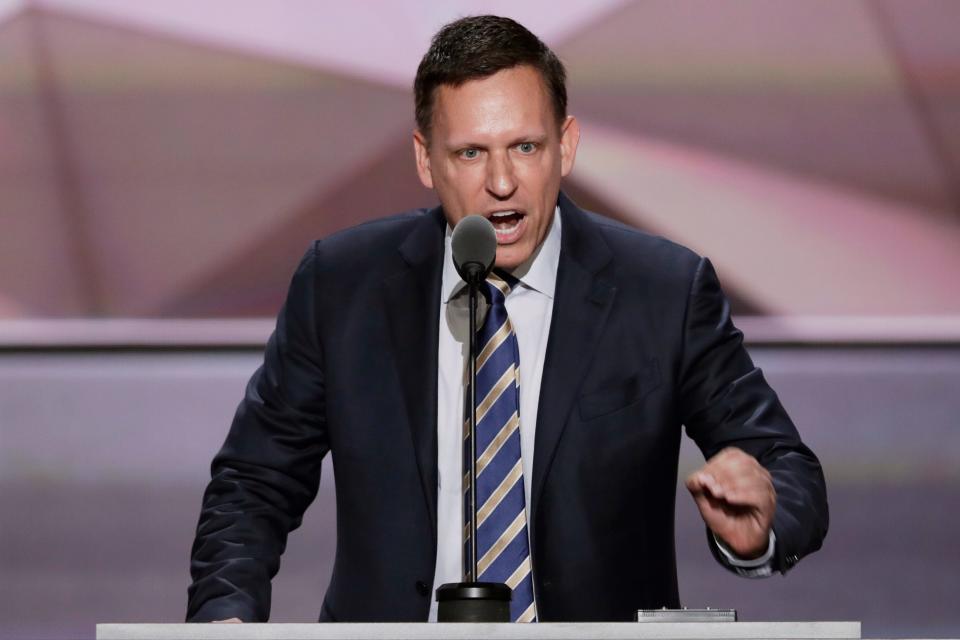
Peter Thiel, 54, was the first outside investor in Facebook and cofounded PayPal and the software company Palantir Technologies.
Thiel, now a partner at venture capital firm Founders Fund, which funded Airbnb and SpaceX, has made headlines for rarified real estate purchases, including on a man-made island in Miami. In New Zealand, he planned to build a sprawling compound with a theater lounge, meditation pod and spa, according to Insider, until local officials this summer rejected his plans for the pristine, 477-acre plot.
Thiel has been a big Trump backer since at least 2016. His contributions include $30 million to support groups backing Republican Senate candidates J.D. Vance in Ohio and Blake Masters in Arizona. Both are endorsed by Trump and are former business associates of Thiel himself.
A spokesman for Thiel did not respond to multiple messages seeking comment. Theodore Schleifer, a reporter for Puck, has reported the billionaire has been cultivating a network of “young, populist, Ivy League-educated proteges” and encouraging them to run for office.
Thiel once said he thought politics is “way too intense.”
"That's why I’m a libertarian,” he wrote in 2009. “Politics gets people angry, destroys relationships, and polarizes people's vision: the world is us versus them; good people versus the other. Politics is about interfering with other people’s lives without their consent."
7. Stephen Schwarzman
$21.9 million

Stephen Schwarzman, the CEO and co-founder of private equity firm Blackstone, is known for throwing lavish birthday parties – his 70th in Palm Beach, Florida, featured camels, a performance by Gwen Stefani and trapeze artists.
His 60th in Manhattan was a glittering affair that turned him into a widely bashed example of Wall Street’s conspicuous consumption when markets collapsed and the country fell into the Great Recession.
An ally of Trump, Schwarzman served as chairman of Trump’s short-lived Strategic and Policy Forum and provided outside counsel during his presidency. He did not embrace Trump’s false stolen election claims.
Now 75, Schwarzman has backed a litany of Republican candidates this election cycle, including Sens. Marco Rubio of Florida and Lisa Murkowski of Alaska as well as Senate candidates Katie Britt in Alabama and Adam Laxalt in Nevada. He also gave hefty contributions to the Republican National Committee and GOP groups trying to win control of the House and Senate.
Schwarzman, whose spokesman declined to comment on the record, said on CNBC in 2019 that he doesn’t believe a wealth tax would work to address income inequality in the United States and efforts should be made instead to improve education – as he has done through charitable giving – so graduates will get better paying jobs.
8. Larry Ellison
$21 million
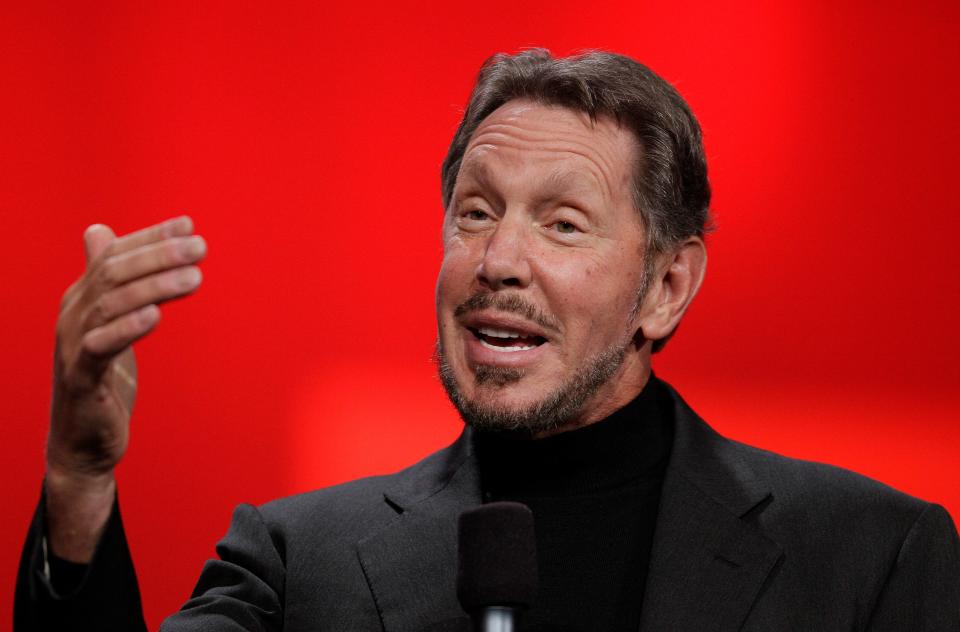
Oracle co-founder Larry Ellison made headlines during the COVID-19 pandemic by moving to his Hawaiian island – the one he reportedly bought for $300 million in 2012 – and by discussing with Trump the use of hydroxychloroquine, the unproven treatment for the virus, according to the New York Times.
The 78-year-old was a stalwart backer of the former president and joined a conference call following his loss in 2020 that was focused on ways to challenge the election’s legitimacy, The Washington Post reported.
More recently, Ellison made news when he committed $1 billion to finance his friend Elon Musk’s purchase of Twitter. He previously sat on Tesla’s board.
Ellison’s political contributions at one time were spread between Democrats and Republicans, but this time, he gave only to Republican groups.
His biggest outlay, totaling $20 million so far, went to the Opportunity Matters Fund, a political committee that says it backs candidates who support school choice and economic freedom. The group is aligned with Sen. Tim Scott, R-S.C., who went to Hawaii to ask Ellison for money, Politico reported. Oracle spokespeople did not return multiple messages seeking comment.
Ellison’s massive buy-in has stoked rumors Scott may be laying the groundwork for a presidential run.
9. Stephen Mandel
$15.3 million
Stephen Mandel is the founder of Lone Pine Capital, a Connecticut-based hedge fund and investment firm, and an avid supporter of Democratic politics and anti-Trump Republicans.
The 66-year-old gave nearly $10 million this election cycle to American Bridge 21st Century, a Democratic research and communications organization, and Future Forward, a group that Vox reported unleashed a last-minute spending barrage against Trump in 2020. Mandel also gave more than $1 million to an anti-Trump super PAC, The Lincoln Project, in 2020, Forbes reported, making him the largest donor to the Republican-led group.
Mandel gave this time around to a sprinkling of Republicans who voted to impeach Trump, including Sen. Lisa Murkowski of Alaska, and members of the Jan. 6 committee, including GOP Reps. Adam Kinzinger, who decided not to run again, and Liz Cheney, who lost her bid for reelection.
He also gave sizeable, six-figure contributions to Democratic Party committees trying to maintain control of the House and Senate. Mandel, who declined to comment, has said he believes improving education is a key to progress in the United States.
“One of the things that drove the U.S. to prominence over the course of the 20th century was having a strong public education system,” Mandel told Dartmouth College where he was chair of the board of trustees in 2010. "As a country, we are now losing ground competitively in the world, in part because we are not educating our populace as well. We have ridiculous inequities in people’s chances in life that are purely a function of the zip code they live in. There is ample evidence that given the right school and the right teachers, all kids can achieve remarkably.”
10. Paul Singer
$14.3 million

Hedge fund manager Paul Singer, 78, founded Elliott Investment Management in 1977 with $1 million in capital. The firm now manages nearly $56 billion. Elliott, described as one of Wall Street’s most feared funds by Forbes, has been an active investor that has taken over companies and pushed them to restructure.
Singer has been prescient with major world events, warning regulators about an impending financial crisis before the country plunged into recession in 2007, the Wall Street Journal reported. In early 2020, he foresaw coronavirus lockdowns, and warned employees to prepare. Bloomberg noted that managers at his fund hedged their bets, helping Elliott to escape the worst of the devastating market drop in March 2020.
Singer is a passionate soccer fan. His firm bought an Italian soccer team in 2018 for nearly $59 million, the Journal reported, pledging to return AC Milan to “the pantheon of top European football clubs where it rightly belongs.” The team won its first league title in 11 years last year before announcing in June the club would be sold to a New York investment firm for $1.2 billion.
When it comes to politics, Singer is placing his money behind Republicans. He has given millions to GOP committees seeking to win control of the House and Senate and also backed groups supporting Republican women and veteran candidates.
Singer, who declined through a spokeswoman to comment or be interviewed, is chair of the Manhattan Institute for Policy Research, a conservative think tank whose fellows have called Biden “financially illiterate” and argued against including gender and sexuality studies and critical race theory in school curriculums.
11. Bernard Marcus
$14 million
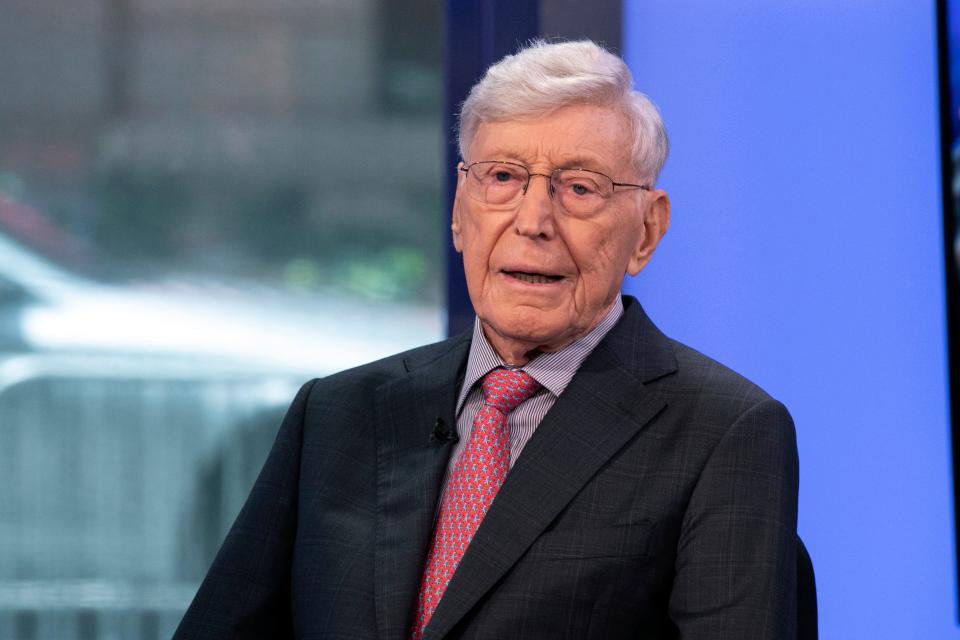
Bernard Marcus, 93, is a self-made billionaire whom Forbes pegged as the richest man in Georgia.
He is the co-founder of The Home Depot, and was one of Trump’s largest donors in 2016. He continued to back the former president during his reelection campaign and is supporting Trump-backed candidates this time around, including Rep. Lauren Boebert, R-Colo., and former NFL player Herschel Walker, who is running for a Senate seat in Georgia.
Marcus also poured millions into efforts that backed candidates who lost in the primaries, including Senate candidates Josh Mandel in Ohio and Eric Greitens in Missouri. Greitens was Missouri governor until 2018 when he resigned amid allegations of sexual misconduct and campaign finance impropriety.
Marcus, who praised Trump in 2020 for removing a lot of “killer" regulations, founded the Job Creators Network, an advocacy group that contends government rules hinder job creation.
A spokeswoman said Marcus was unavailable for comment. He recently penned a memoir, “Kick Up Some Dust: Lessons on Thinking Big, Giving Back, and Doing It Yourself,” with a foreword by Pitbull that chronicles the building of the world’s largest home improvement retailer by the son of a cabinet maker who was fired at age 49. “It was a wild ride,” a release notes, adding that the book will inspire readers to “dream, build, and give, and, maybe, change the world.”
This article originally appeared on USA TODAY: Billionaire political donations pile up in 2022. Who's given the most?


